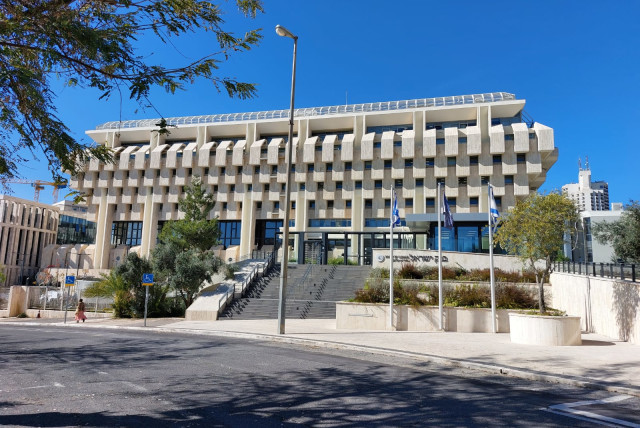How the Gaza war harmed construction, housing by blocking Palestinian workers - opinion

Building sites came to a crashing halt due to a total ban on the workers’ entry from the West Bank when the war broke out on October 7.
In the midst of so much wartime turmoil approaching the anniversary of the October 7 massacre, I decided to skip an invite for a European escape and instead remodel and beautify our family home in Jerusalem. Well, I ended up getting so much more than I bargained for – a chapter in Israeli-Palestinian economic coexistence.
My “instructor” was Moshe Chen, for the last 15 years the director of Fresh Builders, who supervised the renovation in my home. He, along with numerous other contractors, had heeded the government’s call to hire Palestinian workers for the sake of industrial peace.
Then, overnight, building sites came to a crashing halt due to a total ban on the workers’ entry from the West Bank when the war broke out on October 7.
How the Israel-Hamas War impacted construction
As a result, the pace of building for new projects slowed down dramatically. The ban not only affected the scheduled completion of building projects but also led to a substantial increase in building costs, fueling the inflationary spiral. Ultimately, home buyers will foot the bill. In fact, the cost of homes in Israel is up 6% since November 2023.
According to a Bank of Israel report, more than 100,000 Palestinian workers had been employed in Israel prior to October 7, 2023. The Association of Contractors and Builders in Israel estimates the damage at NIS 55 billion and is asking for government compensation to the tune of 3% of GDP. Chen explained to me that as with other burning issues, the government is improvising band-aid solutions. He introduced me to Ran Cohen, the CEO of Eldor Builders, who was sent by the contractors’ association to vet prospective builders in India, Sri Lanka, and Moldova. The process requires complicated and expensive bureaucracy in their countries of origin and in Israel. Of the 6,500 workers screened, only 4,500 passed muster. Still, Cohen complained that the quality of the foreign workers was far inferior to that of the Palestinian builders, who pass on their skills from generation to generation.
Those construction companies that relied solely on the workforce from the West Bank went nearly bankrupt after the October 7 ban on the laborers’ entry. Chen, who had employed a mix of Israeli Arabs and Palestinian workers, is able to keep his head above water. He jumped to the rescue of many of his colleagues stuck with unfinished projects. Others facing financial ruin are related businesses that sell building materials and ceramics. Cohen said he is getting daily pleas from ex-workers in the West Bank who cannot put bread on the table after so many months of unemployment.
The Bank of Israel report warns that economic collapse of the Palestinian economy will have catastrophic implications on security and crime inside Israel. The government did not have enough foresight to arrange for a tent city for the foreign workers. As a result, they have been housed in crowded areas such as Beit Shemesh, leading to price gouging in rent that affects many young couples looking for affordable rentals. An additional problem that Chen and Cohen encountered lies in the area of cultural differences. Unlike the Palestinian workers, whose focus is on earning a living, many of the Indian workers are tempted to flirt with Israeli girls, which is a headache for their employers.
Meanwhile, the Knesset Labor and Welfare Committee is trying to entice Israelis to work in construction by offering grants. So far, not too many candidates from the People of the Book have lined up. Despite the war and the suffering on both sides, it is heartwarming to see people such as Moshe Chen, who every month sends money to a former loyal worker who has an invalid son who requires costly treatments. They know that they need each other.■
Shoshana Tita is a journalist who resides in Jerusalem and serves as director of Torah Life Center of Potomac, Maryland.
Jerusalem Post Store
`; document.getElementById("linkPremium").innerHTML = cont; var divWithLink = document.getElementById("premium-link"); if (divWithLink !== null && divWithLink !== 'undefined') { divWithLink.style.border = "solid 1px #cb0f3e"; divWithLink.style.textAlign = "center"; divWithLink.style.marginBottom = "15px"; divWithLink.style.marginTop = "15px"; divWithLink.style.width = "100%"; divWithLink.style.backgroundColor = "#122952"; divWithLink.style.color = "#ffffff"; divWithLink.style.lineHeight = "1.5"; } } (function (v, i) { });

